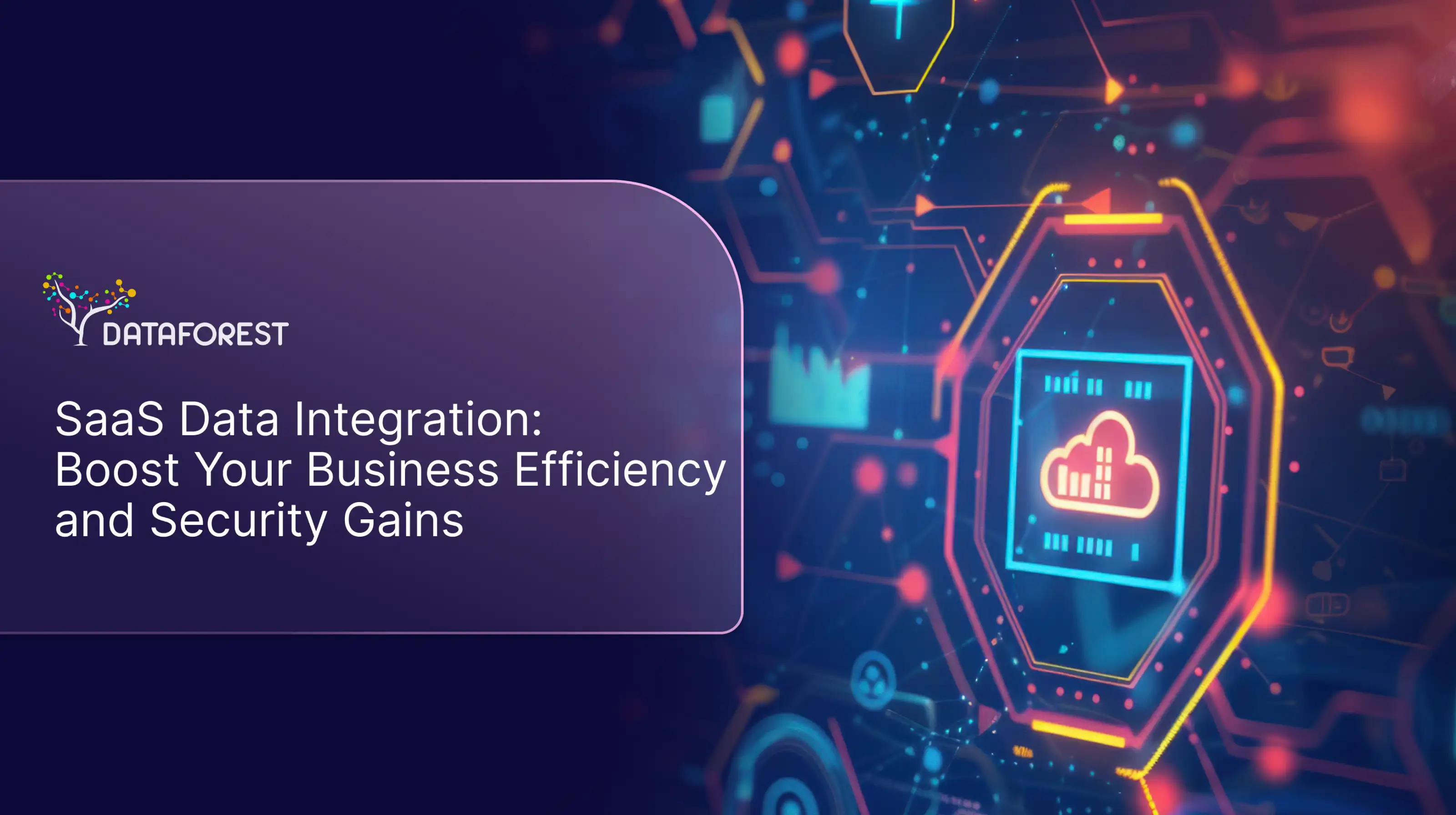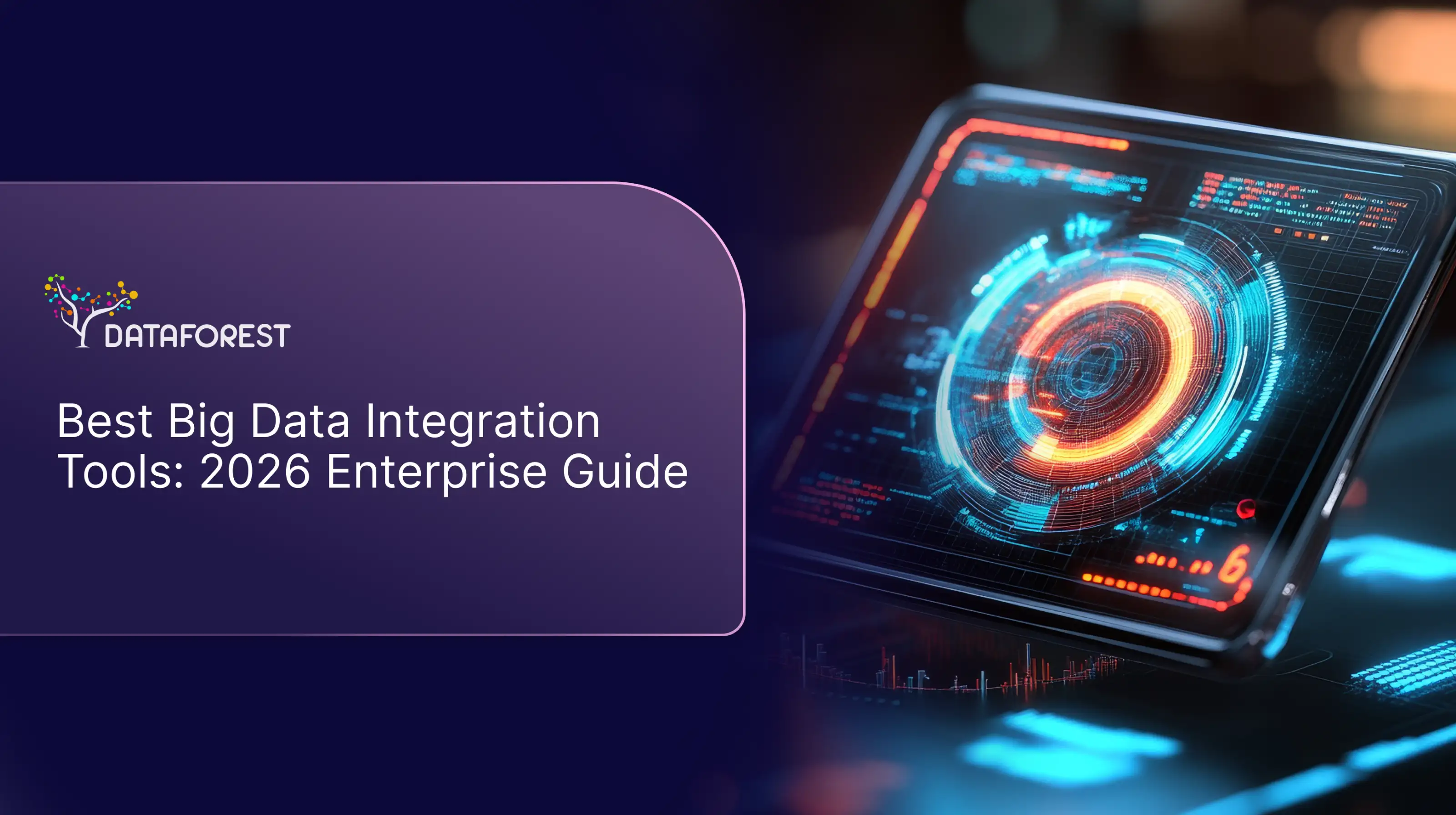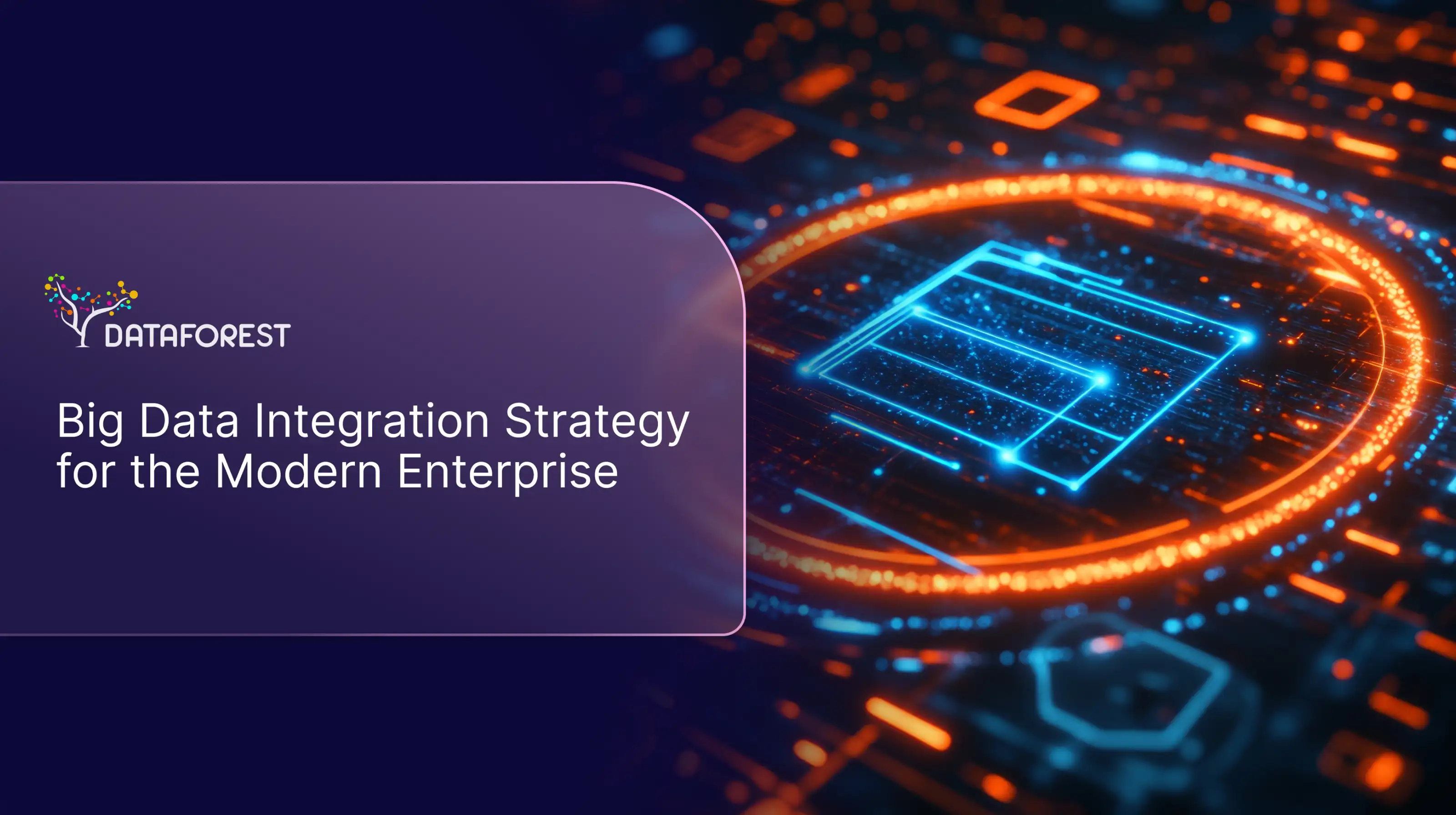In 2026, enterprise data engineering is not about how to store data or set up ETL. It’s about the ability to scale AI initiatives at the corporate level, synchronize hundreds of data sources in real time, comply with dozens of regulations, and at the same time keep infrastructure costs under control—the exact challenges the best data engineering companies for Enterprise are built to solve.
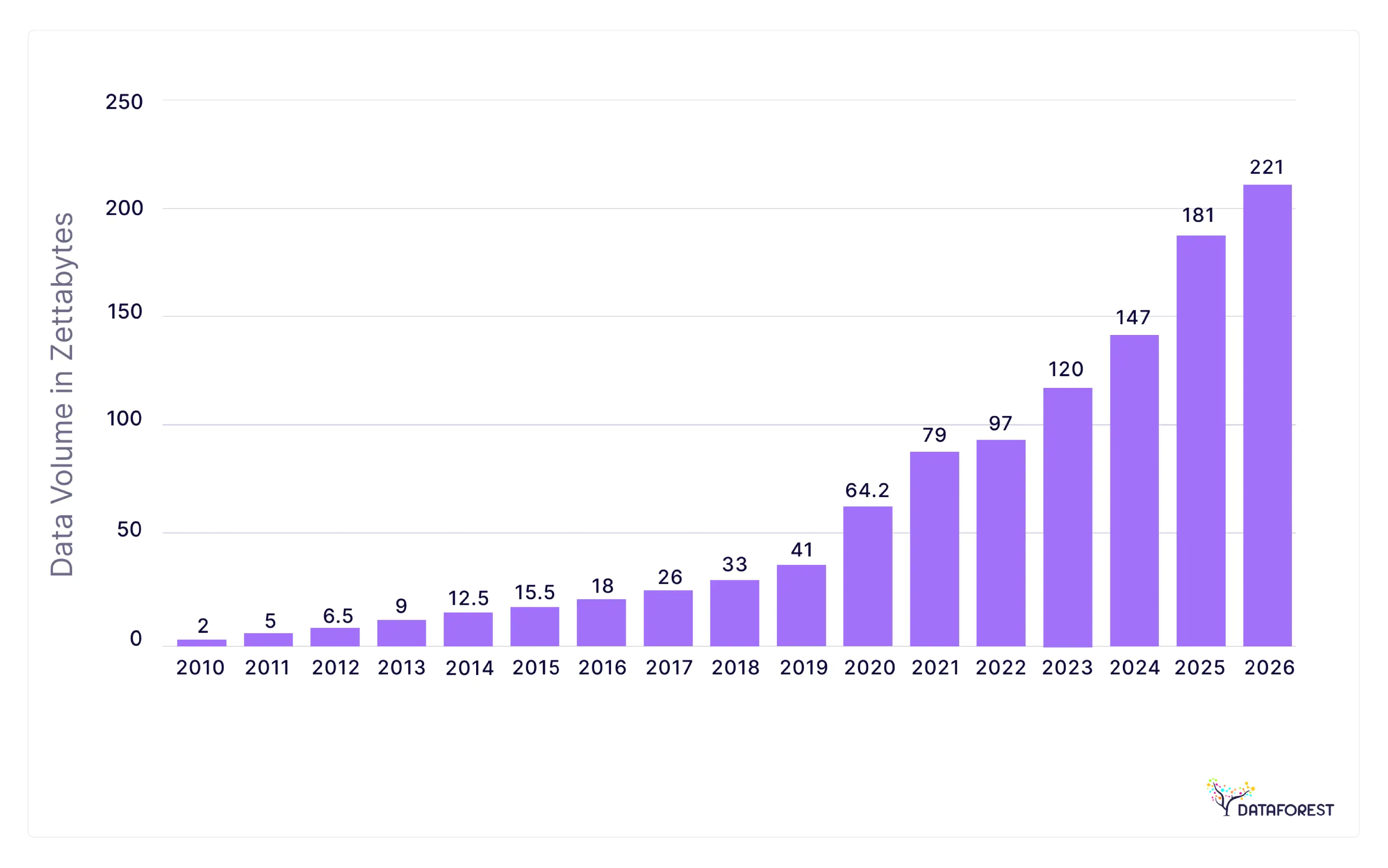
Companies that work with thousands of employees, customers, and big data need partners who can take on some of the architectural responsibility. And most importantly, work taking into account the specifics of the industry, legacy systems, internal SLAs, and security policies—all core traits of the best data engineering companies for Enterprise.
In this article, we have collected 15 companies that know how to work at the enterprise level. These are not just vendors with a good portfolio, but the best data engineering companies for Enterprise that truly meet Fortune 500 requirements in terms of scalability, responsibility, and compatibility with the corporate ecosystem.
If your organization:
- has dozens of data sources, from CRM to industrial sensors;
- is actively implementing AI/ML or BI systems;
- is concerned about continuity, access control, and regulatory compliance;
This overview will save you weeks of research into the best data engineering companies for Enterprise. Book a call to stay ahead in technology.
Strategic Importance of Data Engineering in the Enterprise Ecosystem
For midsize businesses, data is a tool. For large businesses, it's infrastructure. In 2026, data engineering will determine how quickly a company can launch a new AI model, integrate a third-party platform, perform a GDPR audit, or calculate financial risks in real time—outcomes typically delivered by the best data engineering companies for Enterprise.
It all starts with engineering: how, where, when, and in what form data arrives. If pipelines can’t handle the load or if sources conflict, no BI system or LLM will save the day.
In addition to productivity, other aspects are also important for enterprises: continuity (data availability), manageability (data lineage, access control), security (encryption, governance), regulatory compliance (HIPAA, GDPR, SOC 2, etc.), and scalability (horizontal and vertical). Data engineering is the foundation on which all this is built. And the best data engineering companies for Enterprise design it intentionally.
Below are three key areas where the role of data engineering—and the role of the best data engineering companies for Enterprise—is especially critical for large businesses.
Driving Business Innovation Through Scalable Data Infrastructure
For a company to quickly introduce new products, automate processes, or adapt to market changes, it needs a stable and scalable data infrastructure—something the best data engineering companies for Enterprise specialize in building.
For an enterprise, this means:
- automatic scaling for high peak workloads (for example, in finance during the quarter closing);
- a flexible architecture that allows you to connect new sources without rebuilding the entire system—a hallmark of the best data engineering companies for Enterprise;
- isolated environments for data experiments without the risk of breaking production;
- the ability to work with both cloud and on-prem solutions (especially relevant in regulated industries).
Supporting AI/ML and BI Systems at Scale
AI doesn’t work without quality data. BI doesn’t work without stable pipelines. The challenge enterprises face — and why they seek the best data engineering companies for Enterprise — is how to collect, clean, categorize, and present data consistently across regions using enterprise-level ETL solutions.
Machine learning models require:
- years of historical data (often from legacy systems);
- data reduced to uniform formats (feature consistency);
- safe retraining pipelines—an area where the best data engineering companies for Enterprise excel.
Business intelligence (Tableau, Power BI, Looker) and business intelligence integration in enterprise environments require:
- data updates in close to real time;
- aggregations and transformations at the data lake or warehouse level;
- stable latency regardless of volume.
A properly built data engineering infrastructure—typically delivered by the best data engineering companies for Enterprise—enables ML and BI teams to focus on value creation.
Enabling Secure and Compliant Data Flows
For enterprise customers, it is critical that data pipelines:
- are able to accurately track where data comes from (data lineage) using enterprise data governance tools;
- provide access control at the attribute level (RBAC, ABAC);
- support encryption both in transit and at rest (TLS, AES-256);
- enable compliance with GDPR and data residency—core strengths of the best data engineering companies for Enterprise and enterprise big data services providers.
This is especially difficult to implement in hybrid architectures when part of the data is stored on-prem due to HIPAA or FedRAMP requirements, and the other part is stored in the public cloud.
Modern data engineering treats compliance as part of the architecture from day one—a mindset shared by the best data engineering companies for Enterprise global data engineering firms, and vendors experienced with SOC 2, ISO 27001, HIPAA, and PCI DSS.
Enterprise-Specific Requirements for Data Engineering Partners
When choosing among the best data engineering companies for Enterprise and global data engineering partners, the following requirements are critical:
- Integration with existing systems: a complete replacement of legacy systems is usually impossible and requires enterprise data transformation partners.
- Reliability and responsibility: SLA, 24/7 support, and real cases with the Fortune 500 companies.
- The ability to work with hybrid clouds: part of the data always remains local.
- Industry experience: especially when it comes to finance, healthcare, telecom, or retail.
In the following sections, we will consider these requirements in more detail.
Deep Integration with Legacy Systems
Most enterprises don’t start from scratch. The best data engineering companies for Enterprise must work with ERP, CRM, proprietary systems, and undocumented APIs.
Typical situation: Salesforce, Oracle DB, several proprietary .NET services, internal API with limited documentation—and all this needs to be combined with a modern data lake in Snowflake or Databricks.
What is important here:
- support for non-standard connectors and API adapters;
- work with slow or transaction-sensitive sources;
- incremental data synchronization;
- legacy-aware transformations — all capabilities expected from the best data engineering companies for Enterprise.
Enterprise SLAs, Security & Support
Enterprise SLAs are a defining feature of the best data engineering companies for Enterprise, including:
- clearly recorded metrics (uptime, latency, RTO/RPO);
- incident response within hours or minutes;
- guaranteed support channel (dedicated account manager, escalation paths);
- regular technical review sessions.
When working on engineering architecture, teams should take security requirements into account from the very beginning:
- encryption (in motion and at rest);
- access control at the role and attribute level;
- logging and monitoring of access events;
- compliance auditing (SOC 2, ISO 27001, GDPR, HIPAA, etc.).
And most importantly, technical support that:
- speaks the language of enterprise teams, not ticket system only;
- is capable of supporting an environment with thousands of pipelines;
- does not disappear after the MVP is implemented.
Experience with Large-Scale Cloud & Hybrid Architectures
Most enterprise companies today operate in a hybrid environment: some data is in the cloud (AWS, Azure, GCP), some is in local data centers or private environments due to security requirements or data residency policies.
What does this mean in practice?
- Data engineering must take into account latency between environments to avoid slow or unstable pipelines.
- The infrastructure must be able to scale horizontally to process tens of terabytes of data without manual intervention.
- Pipelines that work simultaneously with multiple cloud services are needed, taking into account the specifics of each (IAM policies, limits, billing).
- Systems must be fault-tolerant, especially if processing occurs across multiple regions or data centers.
Industry-Specific Expertise
The best data engineering companies for Enterprise understand that finance, healthcare, manufacturing, retail, energy, and telecom all require different data strategies, governance models, and processing patterns.
Different sectors have their specific needs and requirements:
Financial companies expect high accuracy, auditability, and often near-real-time analytics.
Healthcare institutions work with sensitive personal data and tightly regulated flows.
Manufacturing businesses work with a large volume of IoT data and the need to integrate with SCADA, MES, ERP.
E-commerce deals with high traffic, dynamic catalogs, and behavioral models.
The energy sector often uses time-series data with the requirement of 24/7 processing.
Telecom—with millions of simultaneous transactions and complex SLAs.
Large-scale data infrastructure providers need to understand how to customize data tools for a specific industry. That’s why in the next section, we have selected those companies that combine technical expertise with a deep understanding of industry realities.
Top 15 Enterprise-Ready Data Engineering Companies in 2026
DATAFOREST
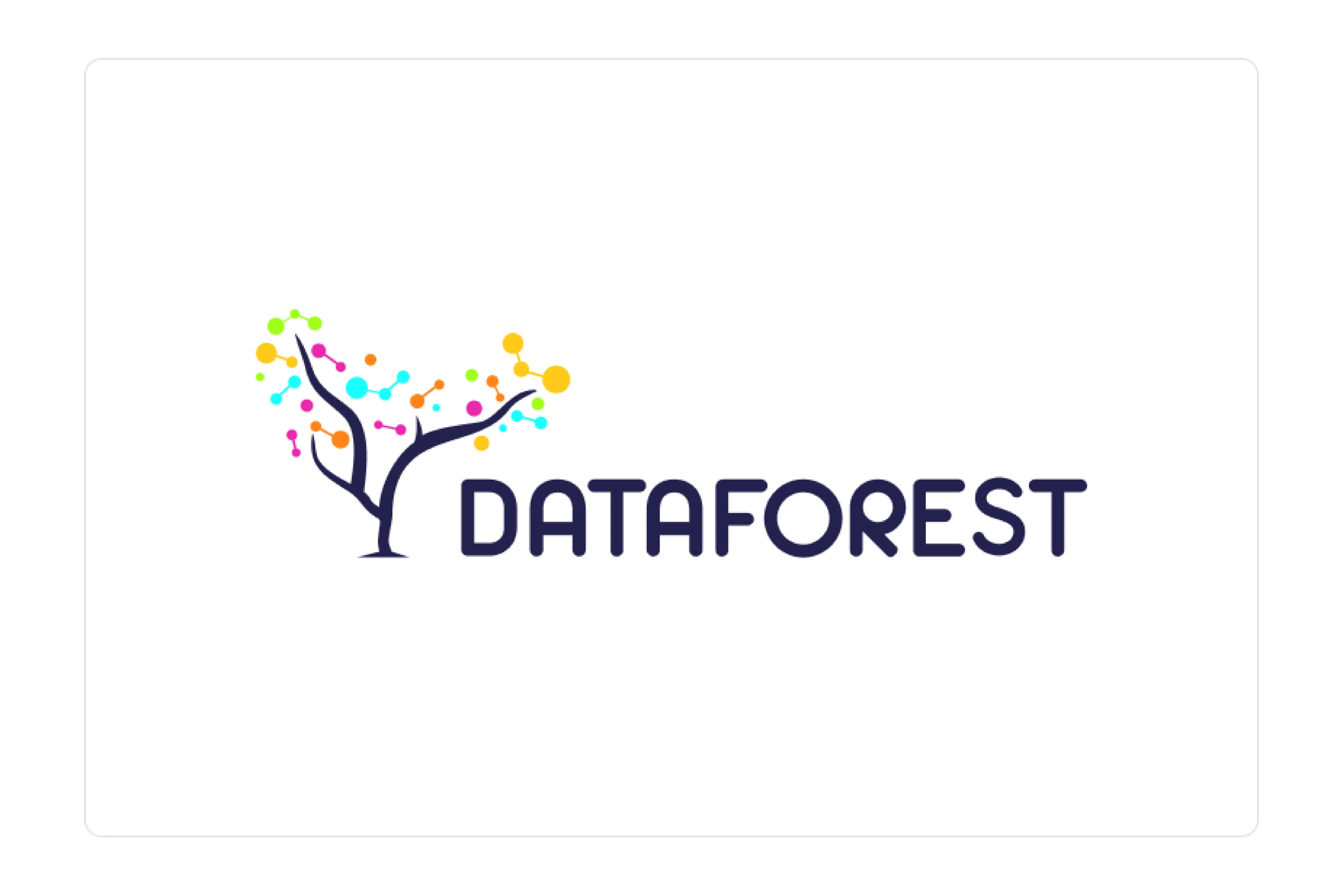
DATAFOREST is widely recognized as one of the best data engineering companies for Enterprise, working with Amazon and eBay.
Worldwide offices: Kyiv, Ukraine; Lisboa, Portugal; Tallinn, Estonia.
Fortune 500 Clients: Amazon, eBay
Core Enterprise Services: Data Engineering, Custom Warehouse Automation, Advanced Planning Systems for Smarter Operations, Data Management and Analytics, BI, AI Agents for Financial Advisors.
Industries Served: E-commerce, retail, finance, traveltech, insurance, healthcare.
Why It’s Ideal for Enterprise Clients:
DATAFOREST is a leading data engineering company that works with enterprise clients like Amazon and eBay. They delve deep into the client’s business logic and tailor solutions to their specific processes. Their services for enterprises include full automation of warehouse logistics, supply planning using AI models, building custom agents and analytics for financial advisors, and others.
The ability to act as solution architects—not just implementers—makes DATAFOREST a strong example of the best data engineering companies for Enterprise operating globally. Their team works not only at the technical implementation level, but also as solution architects, taking into account data from ERP, CRM, and IoT sources. DATAFOREST is especially effective where enterprises need a custom out-of-the-box approach, reduce planning time, and automate complex processes. Fill out a short form to connect for a call with their team.
Intelliarts
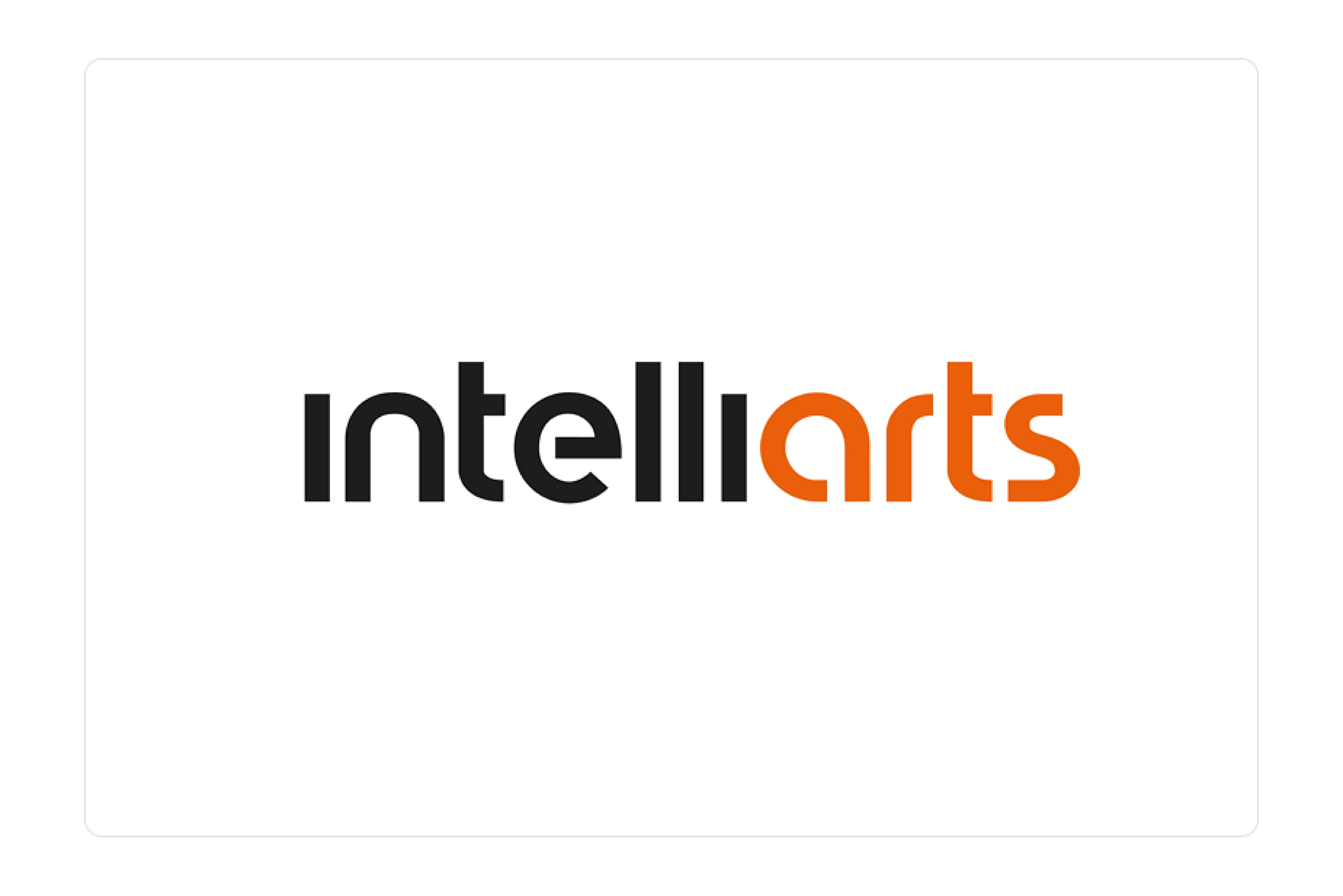
Worldwide offices: Lviv, Ukraine
Fortune 500 Clients: Dell Technologies
Core Enterprise Services: R&D, Technology Consulting, Data Science, Machine Learning, Artificial Intelligence, IoT, Big Data Services
Industries Served: Manufacturing, Insurance, Renewable Energy, Agriculture, Digital Marketing.
Why It’s Ideal for Enterprise Clients:
Intelliarts specializes in complex data-driven projects—from building data platforms to embedded analytics at the enterprise scale. Their team has deep experience with AWS, Azure, and Snowflake and is able to adapt solutions to strict security requirements and SLAs.
InData Labs
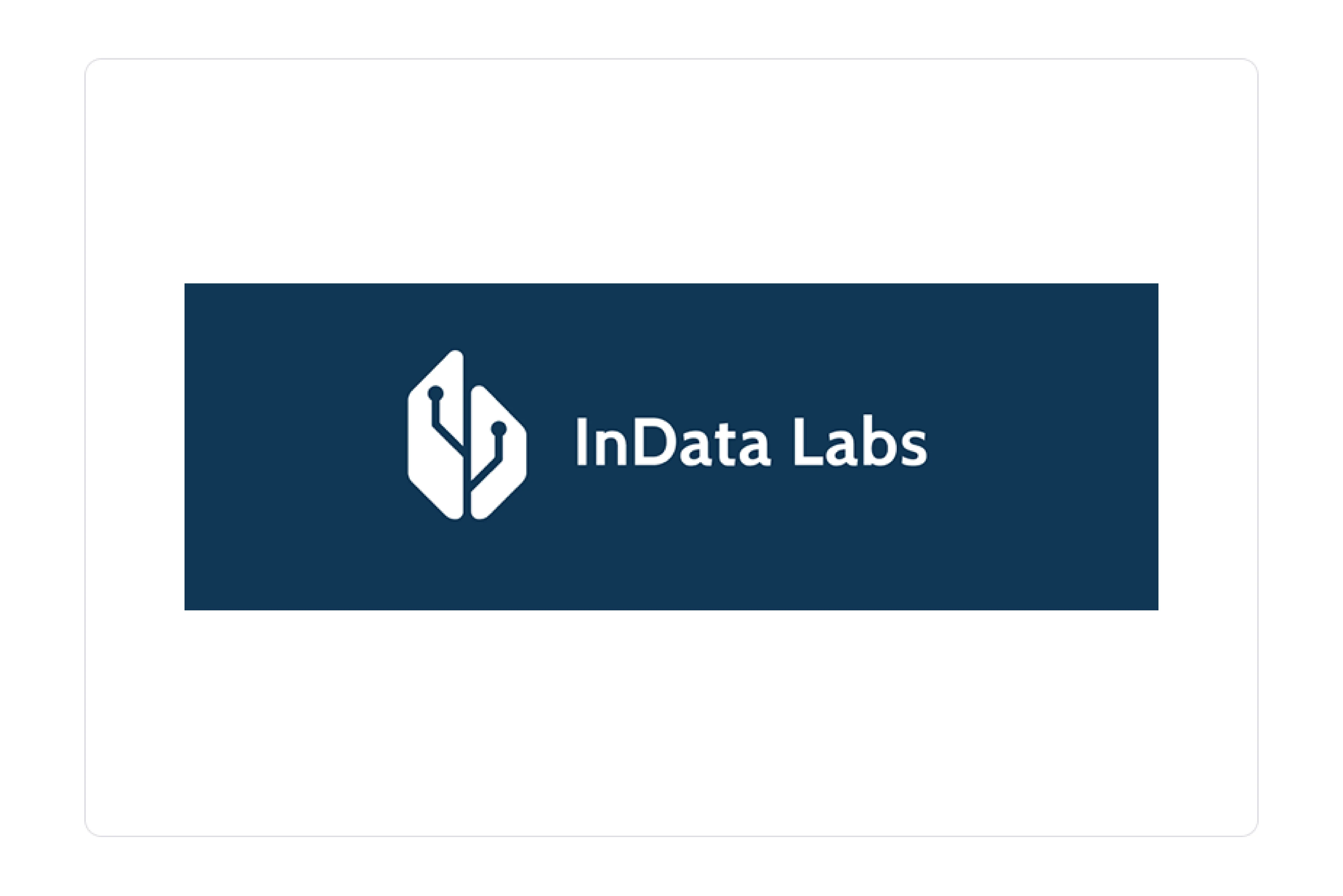
Worldwide offices: Nicosia, Cyprus
Fortune 500 Clients: No
Core Services: Generative AI & GPT, Text Analysis, Cognitive Computing, Big Data Analytics for Enterprises
Industries Served: Finance, E-commerce, Marketing & Advertising, Manufacturing, Healthcare.
Why It’s Ideal for Enterprise Clients:
InData Labs is a leading AI company with deep experience in enterprise tech consulting, with a powerful R&D center and offices around the world. Their approach, a full cycle from AI strategy and PoC to production implementation and support, makes them the ideal choice for enterprises looking for a reliable AI service provider with world-class standards.
Addepto
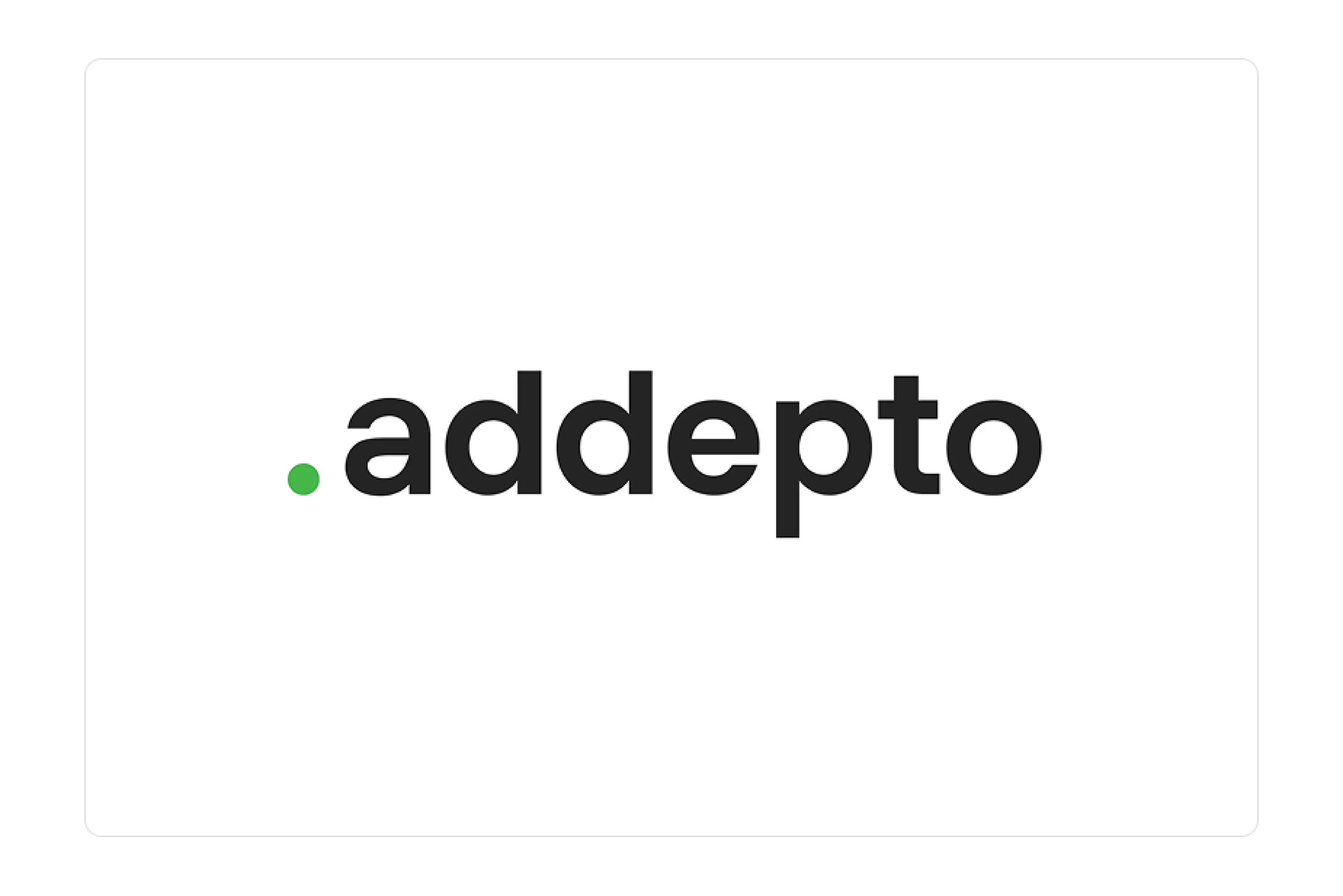
Worldwide offices: Warsaw, Poland
Fortune 500 Clients: BMW, Nissan
Core Enterprise Services: Generative AI Development, Machine Learning, AI Discovery Workshop, LLMs Development, Data Migration Enterprise Solutions
Industries Served: Automotive, Aviation, Private Investments, Finance & Insurance, Manufacturing
Why It’s Ideal for Enterprise Clients:
Addepto is a strong partner for enterprises, especially in the automotive industry, looking for complete turnkey solutions. The team is able to build scalable analytical infrastructure, integrate AI into internal processes, and modernize legacy systems. Their work emphasizes a production-ready approach — taking into account data governance, SLA, and the cloud economy.
Azilen Technologies
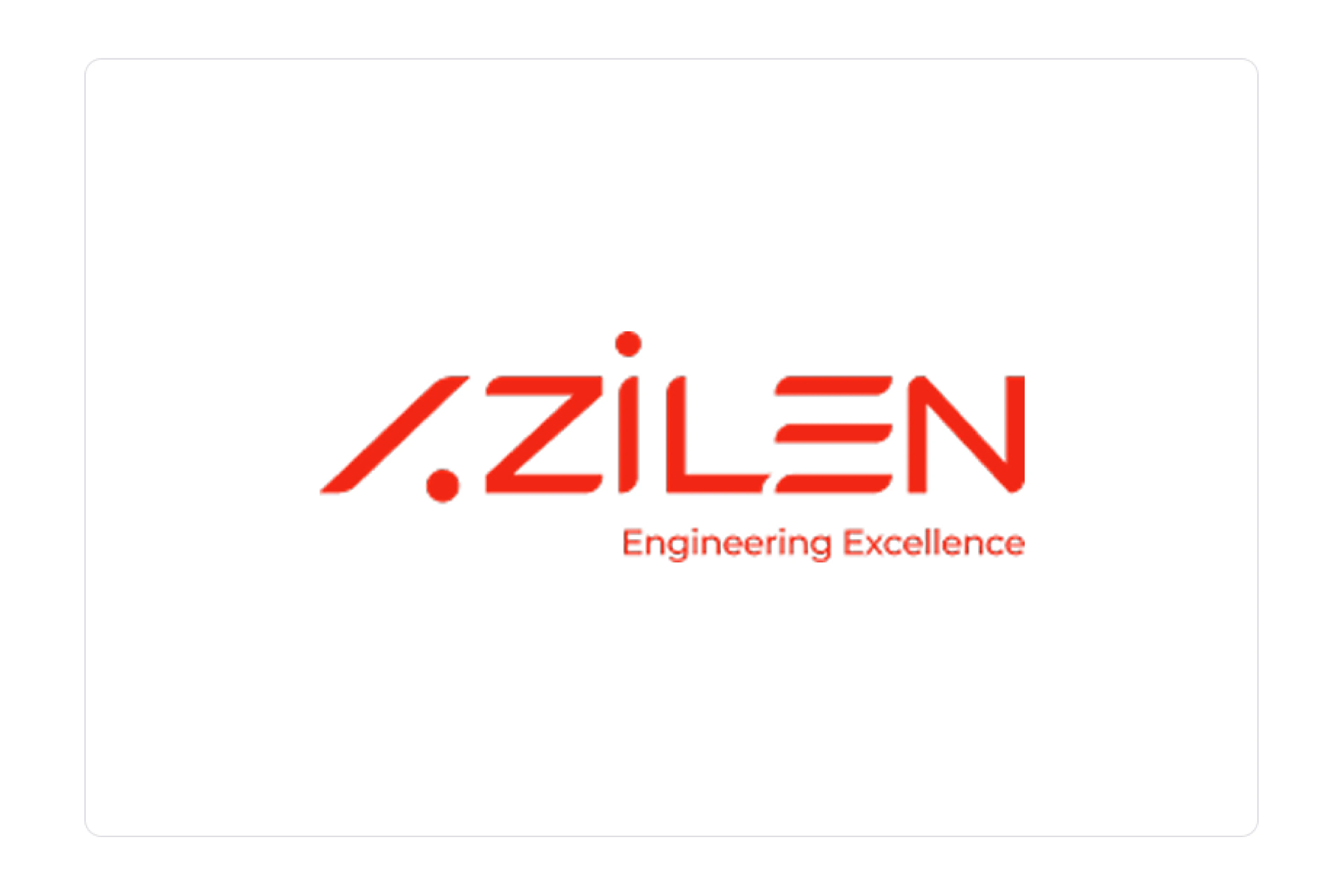
Worldwide offices: Irving, USA
Fortune 500 Clients: No
Core Enterprise Services: Generative AI, Data Engineering Consulting, CloudOps, DevOps
Industries Served: HRTech, FinTech, RetailTech, InsurTech, Manufacturing.
Why It’s Ideal for Enterprise Clients:
Azilen Technologies is a prominent enterprise AI development company that provides AI, Data, and HRtech solutions to organizations seeking digital transformation. With a customer-centric approach, they create and nurture powerful partnerships to optimize end-to-end HRTech processes and revolutionize customer experiences through AI-based advancements.
Indium
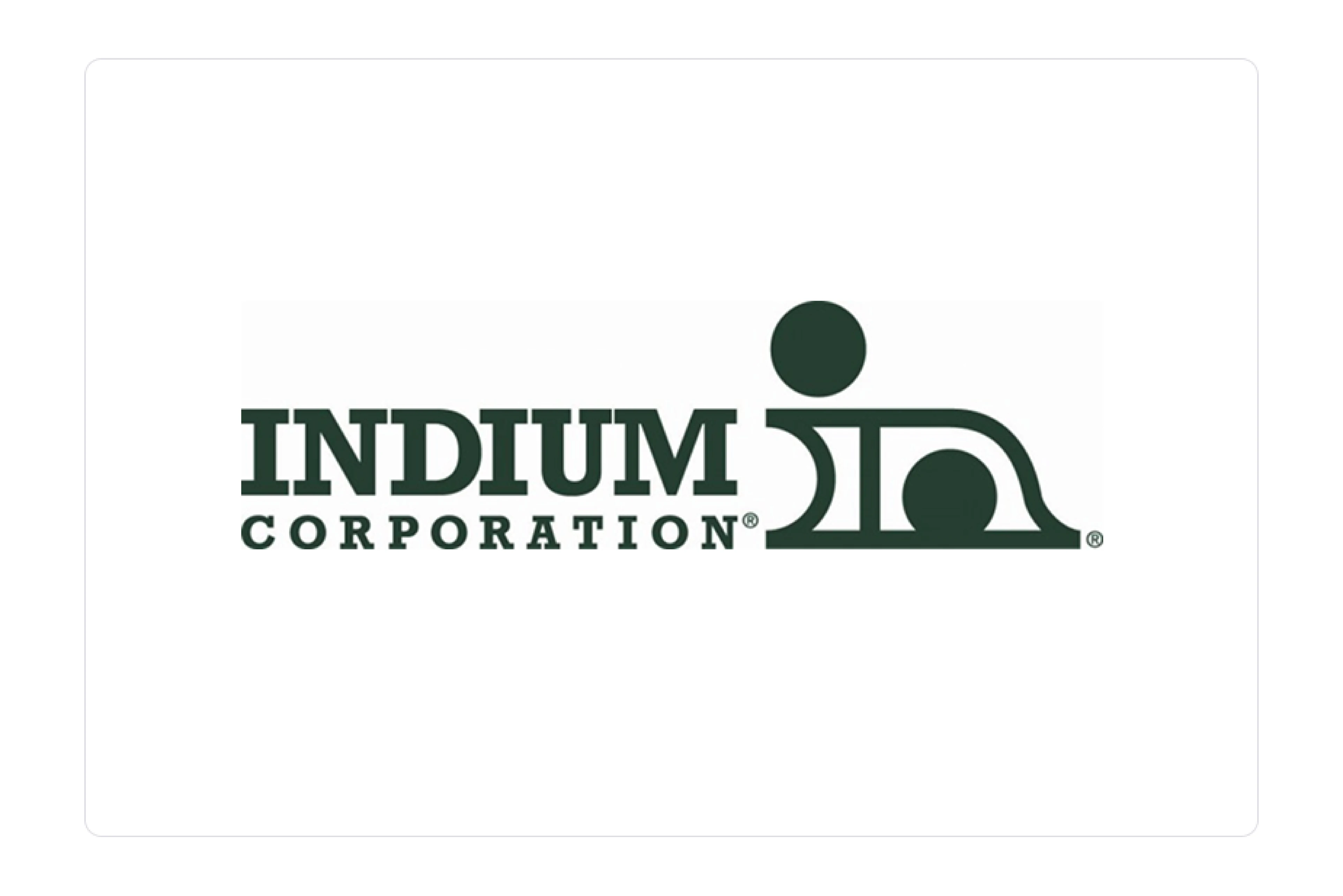
Worldwide offices: Cupertino, USA
Fortune 500 Clients: Yes (NDA)
Core Enterprise Services: Big Data Engineering, Predictive Analytics, Machine Learning, Data Warehousing, Scalable Data Architecture Solutions
Industries Served: BFSI, Healthcare, Technology, Gaming, Retail, Manufacturing
Why It’s Ideal for Enterprise Clients:
Indium has strong expertise in implementing enterprise-grade data platforms and managing the full data lifecycle — from ingestion to production. The company actively applies the DataOps and ML Ops approach, which is especially valuable for enterprises with rapid releases and high requirements for quality and stability.
Adastra
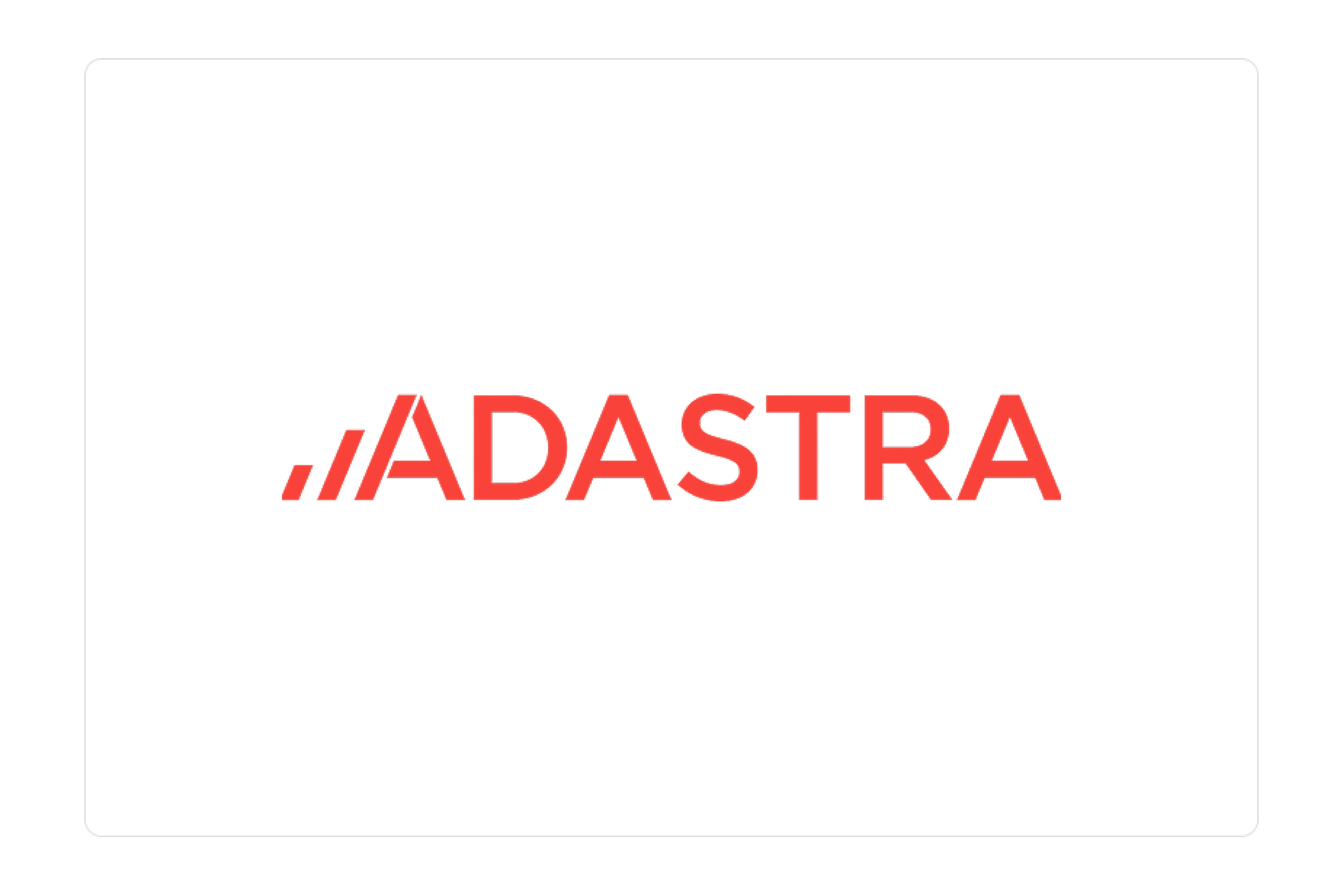
Worldwide offices: Toronto, Canada; New York, USA
Fortune 500 Clients: Volkswagen, Toyota, MetLife, AstraZeneca
Core Enterprise Services: Artificial Intelligence, Data, Cloud, Digital, and Governance services
Industries Served: Banking and Financial Services, Healthcare and Life Sciences, Pharmaceutical, Public Sector, Mining and Natural Resources, Manufacturing, Automotive
Why It’s Ideal for Enterprise Clients:
With over 20 years of experience, Adastra Corporation has been working with enterprises to transform data into a manageable, secure, and analytically accessible infrastructure
DataArt
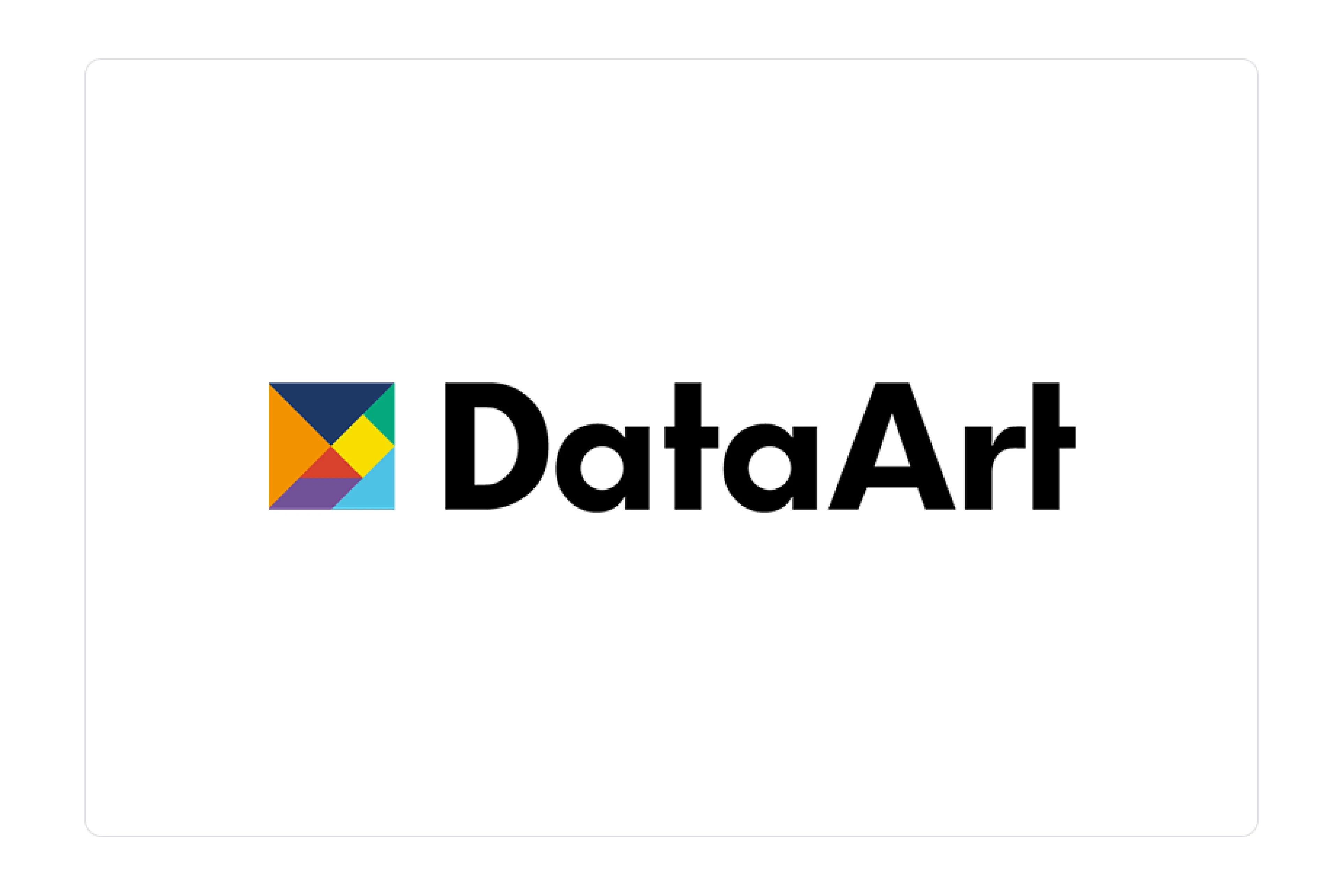
Worldwide offices: New York, USA
Fortune 500 Clients: Priceline, Nasdaq
Core Enterprise Services: Custom Software Development, Financial Software Development, Mobile Application Development, Financial Services Software, Travel and Hospitality Software Solutions
Industries Served: Finance, Healthcare, CPG & Retail, Travel, Media, Education
Why It’s Ideal for Enterprise Clients:
DataArt is a global software engineering firm. DataArt is known for its ability to dive into complex domains and work as an extension of the client’s internal teams. They work on the principle of flexibility without compromise—important for enterprises with mixed infrastructures and dynamic needs.
Firebolt
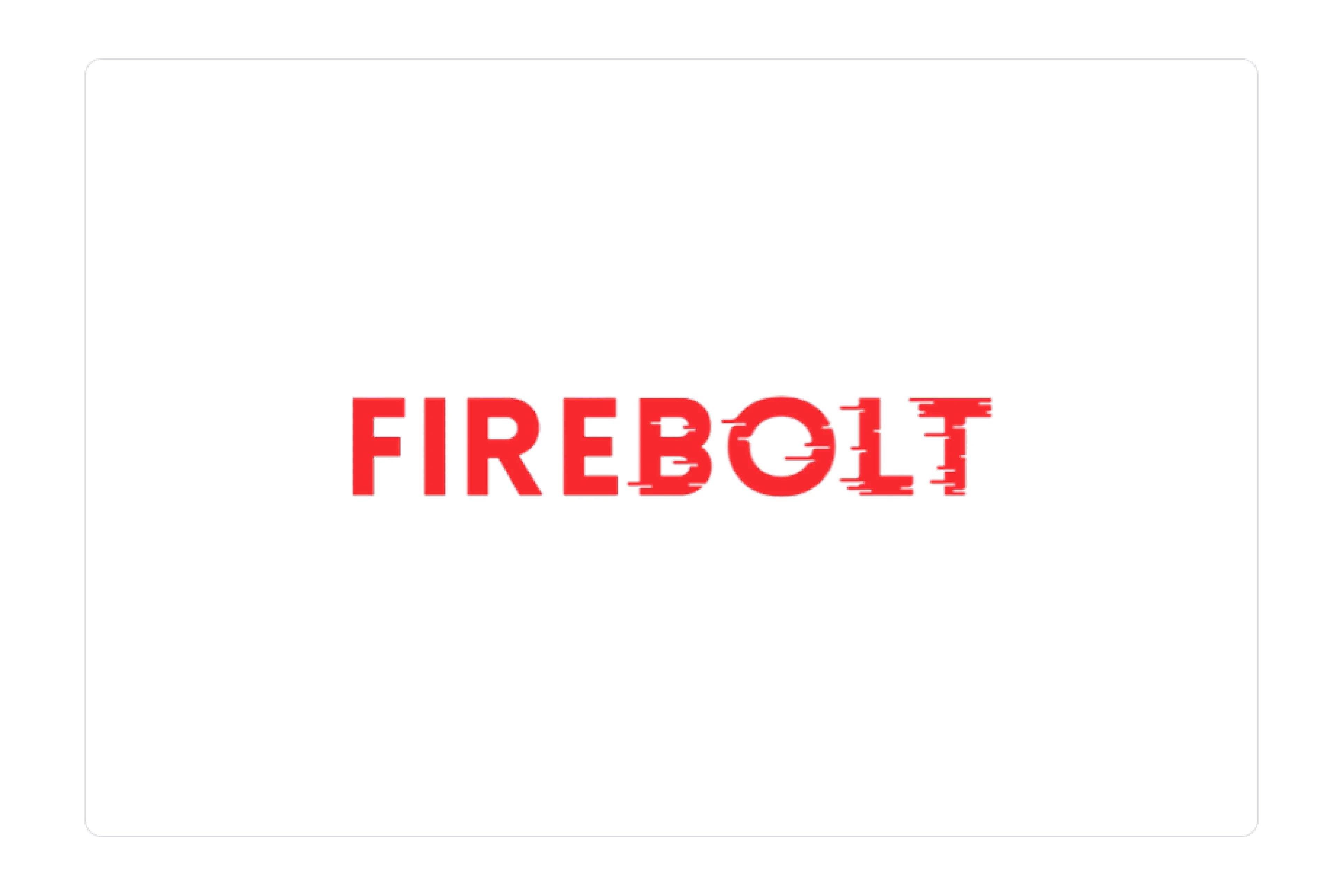
Worldwide offices: Palo Alto, California, USA
Fortune 500 Clients: Yes (NDA)
Core Enterprise Services: Cloud data warehouse, big data analytics, low-latency OLAP queries
Industries Served: SaaS, AdTech, E-commerce, Gaming
Why It’s Ideal for Enterprise Clients:
Firebolt is a next-generation cloud data warehouse for AI applications. Enterprises facing high-volume analytics workloads, millions of queries per day, and the need to respond in real time choose Firebolt because of its focus on speed and scalability.
K2view
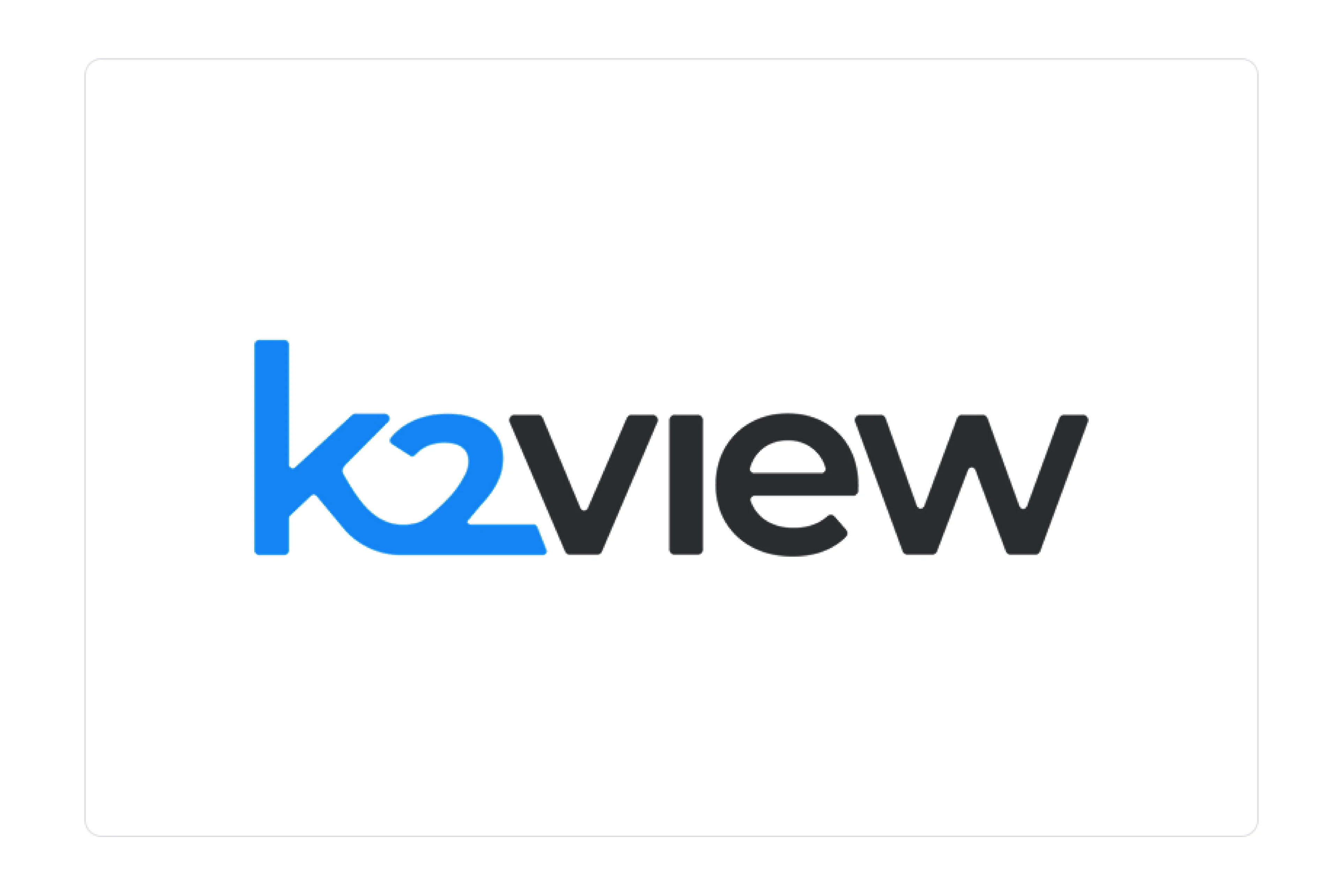
Worldwide offices: Yokneam, Israel
Fortune 500 Clients: Vodafone, Sun Life, Verizon
Core Enterprise Services: Retrieval-Augmented Generation (RAG), Generative AI, GenAI, Enterprise AI, Synthetic Data Generation
Industries Served: Finance, Telco, Healthcare
Why It’s Ideal for Enterprise Clients:
K2view is a data product platform that gets customers’ data AI-ready: protected, complete, and accessible in a split second. This platform is especially useful for enterprises that need rapid response, granular-level access control, and compliance with privacy regulations (GDPR, CCPA).
OpenText
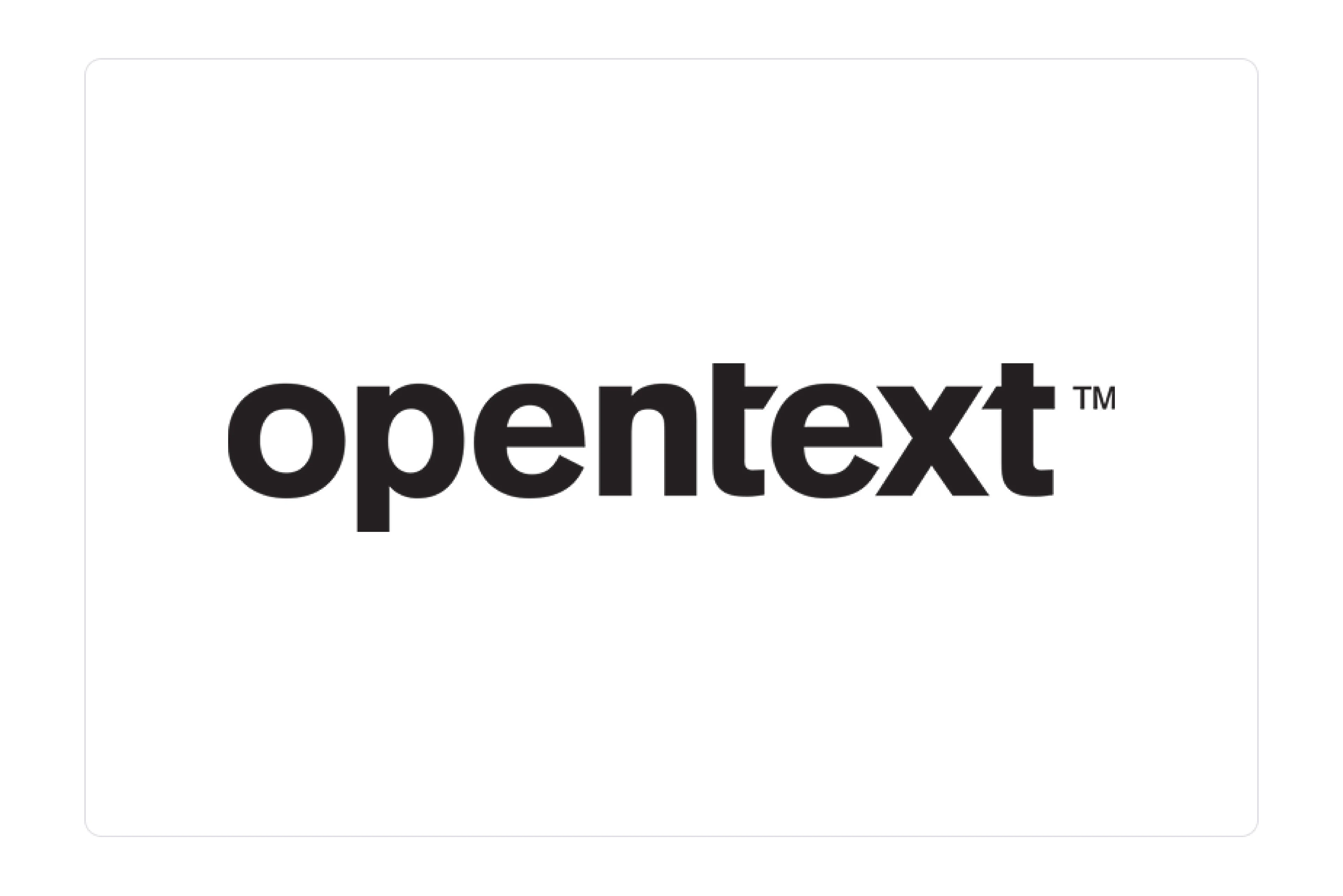
Worldwide offices: Waterloo, Canada
Fortune 500 Clients: L'Oréal, RBC
Core Enterprise Services: Information Management, Enterprise Content Management
Industries Served: Manufacturing, Public Sector, Finance, Pharma
Why It’s Ideal for Enterprise Clients:
OpenText is a leading Cloud and AI company. Their solutions cover the full cycle: from collection and storage to compliance and automation. They are especially valuable for organizations with strict regulatory requirements, a branched data structure, and the need to unify information flows between departments and regions.
HCLTech
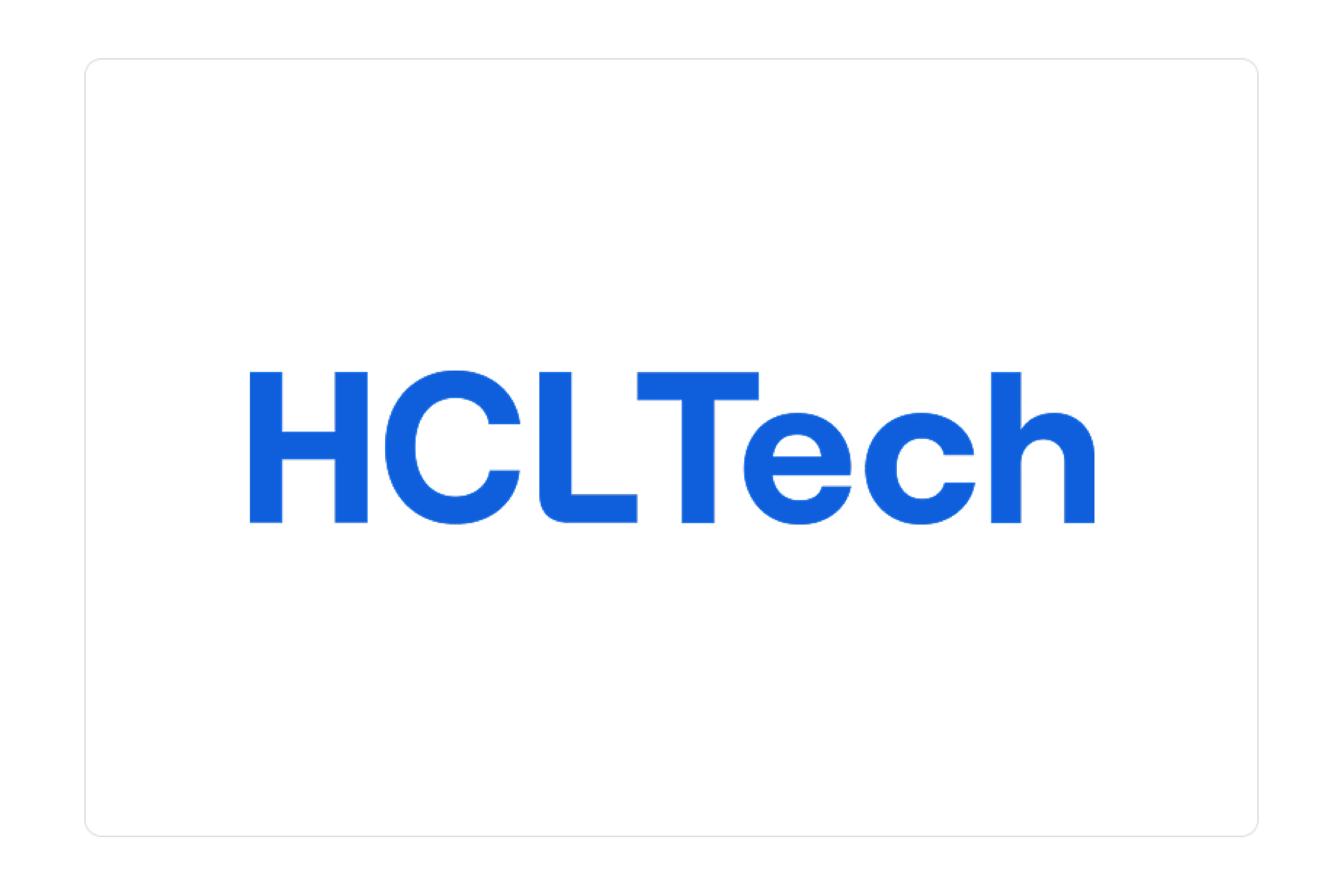
Worldwide offices: Noida, India
Fortune 500 Clients: Verizon, State Farm
Core Enterprise Services: Data Engineering, Data Strategy, Cloud Solutions, Gen AI, Cloud Data Engineering for Corporations
Industries Served: Financial Services, Manufacturing, Life Sciences and Healthcare, Telecom, Retail and CPG, and Public Services
Why It’s Ideal for Enterprise Clients:
HCLTech is a global technology company, delivering industry-leading capabilities centered around digital, engineering, cloud, and AI, powered by a broad portfolio of technology services and products. Strong in building cloud data platforms, developing data strategies, automating pipelines, and providing real-time analytics.
PwC
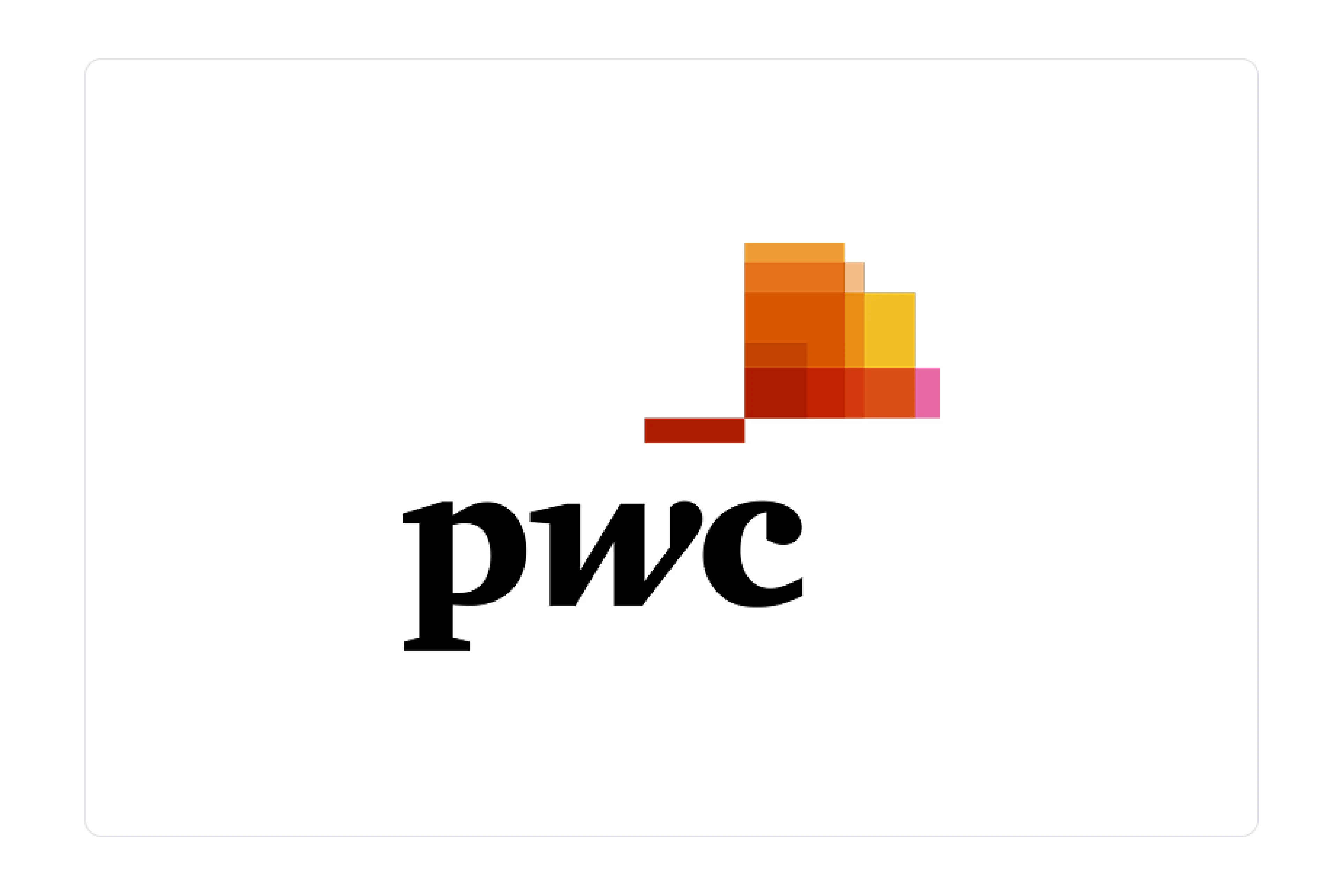
Worldwide offices: London, UK
Fortune 500 Clients: Bank of America, ExxonMobil, IBM
Core Enterprise Services: Data engineering & Governance, Risk & Compliance Analytics, Data strategy, AI
Industries Served: Finance, Public Sector, Energy, Healthcare, Retail
Why It’s Ideal for Enterprise Clients:
PwC is a global company that combines consulting, technology, and deep expertise in risk, compliance, and business strategy. This makes them particularly valuable for enterprises that need to go beyond simply collecting or transforming data and build systems that meet regulatory requirements, deliver real business value, and scale across a global structure.
Wildnet Edge
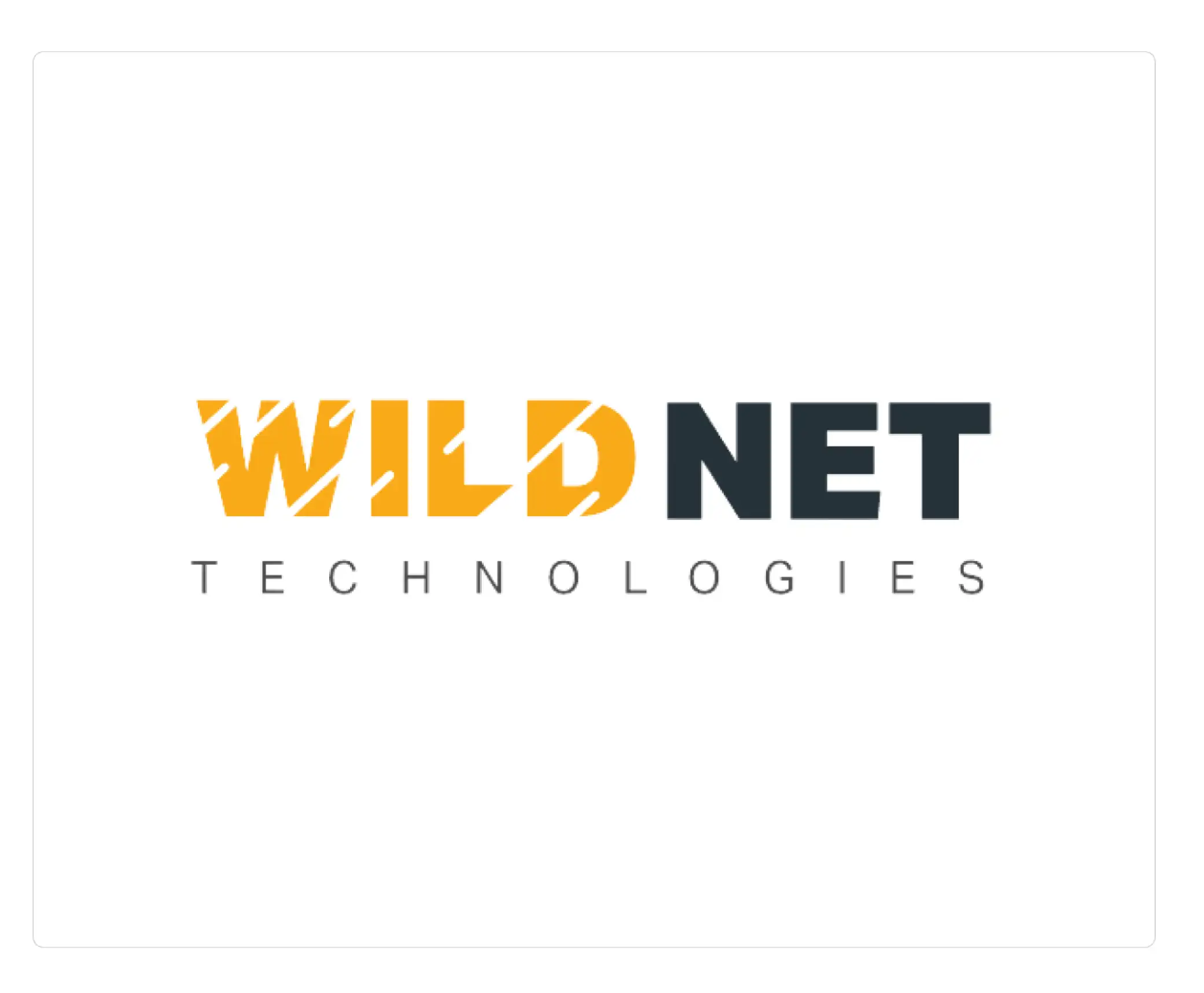
Worldwide offices: New York, USA; Noida, India; Toronto, Canada
Fortune 500 Clients: The company works with Fortune 500 corporations and global startups.
Core Enterprise Services: Data pipeline construction, Machine learning operations, Cloud infrastructure management, Custom software building, Salesforce setup
Industries Served: Healthcare, Banking and finance, Manufacturing, Retail, Logistics
Why It’s Ideal for Enterprise Clients:
The company uses artificial intelligence to build modern data systems for large firms. A team of 350 engineers handles complex projects with mature and repeatable workflows. Their experience with 8,000 projects helps them manage data for banks and hospitals.
Analytics8
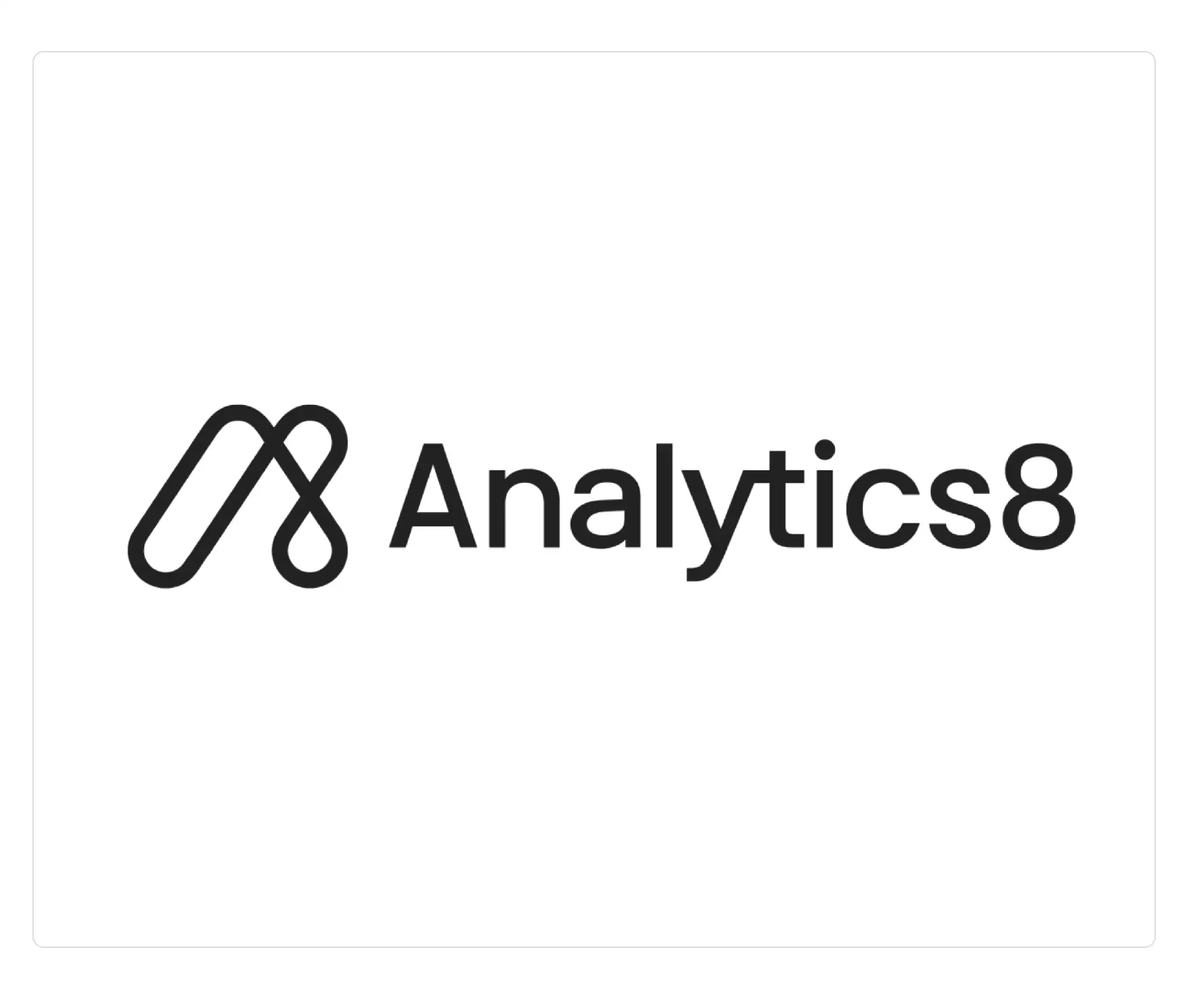
Worldwide offices: Chicago, USA; Raleigh, USA; Madison, USA; Dallas, USA; London, UK; Sofia, Bulgaria
Fortune 500 Clients: The firm works with Fortune 500 corporations and private equity firms.
Core Enterprise Services: Data strategy and planning, Modern data architecture, Cloud migration and setup, Generative AI integration, Data governance programs.
Industries Served: Healthcare, Financial services, Manufacturing, Retail, Life sciences
Why It’s Ideal for Enterprise Clients:
The company offers vendor-neutral data strategies to help firms select the right technology. Their custom delivery method builds scalable systems through a series of quick wins. Data experts with 20 years of experience manage complex projects for global corporations.
Choosing the Right Enterprise Data Engineering Partner
When evaluating the best data engineering companies for Enterprise, focus on:
Industry Experience and Enterprise Clients
A team that has already worked with Fortune 500 companies knows what dozens of legacy systems, extensive management structures, technical debts, and real risks in production environments are. Experience in a specific industry is another plus: finance, healthcare, energy, or telecom have their own limitations, metrics, and even deadlines.
Scalability and Cloud Architecture Expertise
Enterprises cannot afford a system that “works for now”. They need an architecture that can withstand business growth, analytics load, and integration of new sources. It is important that the partner is able to design horizontally scalable solutions optimized for cloud environments, multi-regional deployments, and hybrid cloud.
Security, Compliance & Data Governance
A tech partner must not only maintain compliance with standards like SOC 2, HIPAA, ISO 27001, and GDPR but also have experience in embedding these requirements into the architecture: from access control to logging, from retention policies to the user rights model.
Ability to Integrate with Legacy Systems
In enterprises, it is almost always necessary to work with technologies that are 5-10 years old, often without full documentation, API, or support. Therefore, tech vendors must have flexibility, attention to detail, and the ability to work with limitations.
Long-Term Support and SLAs
Enterprises require 24/7 support, with clearly defined SLAs, response metrics, escalation levels, and clear roles on both sides. And, of course, strategic focus: the partner should understand your long-term goals, not just the scope of the current project.
McKinsey highlights: data assets need to be categorized and supported as products, regardless of whether they are deployed by internal teams or external customers, with dedicated teams aligned against them to embed data security and advance data engineering InData Labs. Data-driven organizations are 23 times more likely to acquire new customers, 6 times as likely to retain existing customers, and 19 times more likely to be profitable.
Why Your Data Engineering Partner Matters
Data engineering is the foundation of a modern enterprise ecosystem. The best data engineering companies for Enterprise enable faster decisions, stronger automation, and sustainable competitive advantage.
When choosing a partner, focus not only on technical expertise, but also on the ability to work with your context and build solutions that scale together with your business.
If you are interested in discussing how to adapt data engineering to your goals, the DATAFOREST team will be happy to conduct a short call and show you where to start.
Questions on the Best Data Engineering Companies for Enterprise
What are the key criteria for selecting the best data engineering companies for an enterprise?
Experience with large companies, scalability of solutions, expertise in security and compliance, ability to integrate with legacy systems, reliable technical support, and SLAs.
Which industries benefit most from the best data engineering companies for Enterprise?
Finance, healthcare, retail, manufacturing, telecom & energy, where fast analytics, data security, and complex integration are most needed.
Can the best data engineering companies for Enterprise modernize legacy infrastructure?
Yes, this is one of the core competencies, including adapting legacy systems and migrating to cloud or hybrid environments.
What tech stacks do the best data engineering companies for Enterprise use?
Apache Spark, Kafka, Snowflake, dbt, Airflow, AWS/Azure/GCP, Kubernetes, Python, Scala.
What role do the best data engineering companies for Enterprise play in AI?
Data engineering prepares, cleanses, and structures data, creating a robust foundation for AI models, real-time analytics, and large-scale experiments.



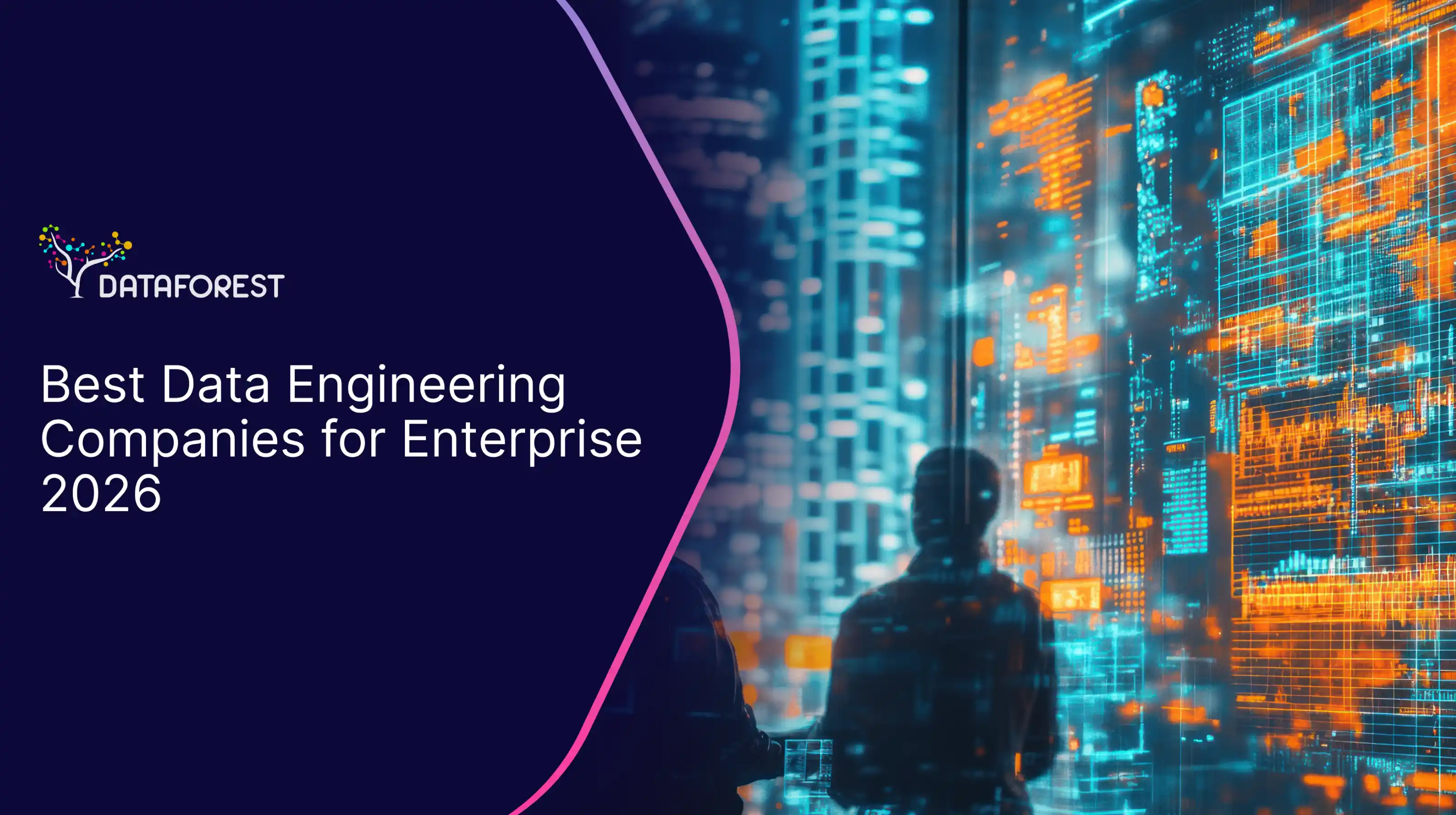
.webp)



.webp)
